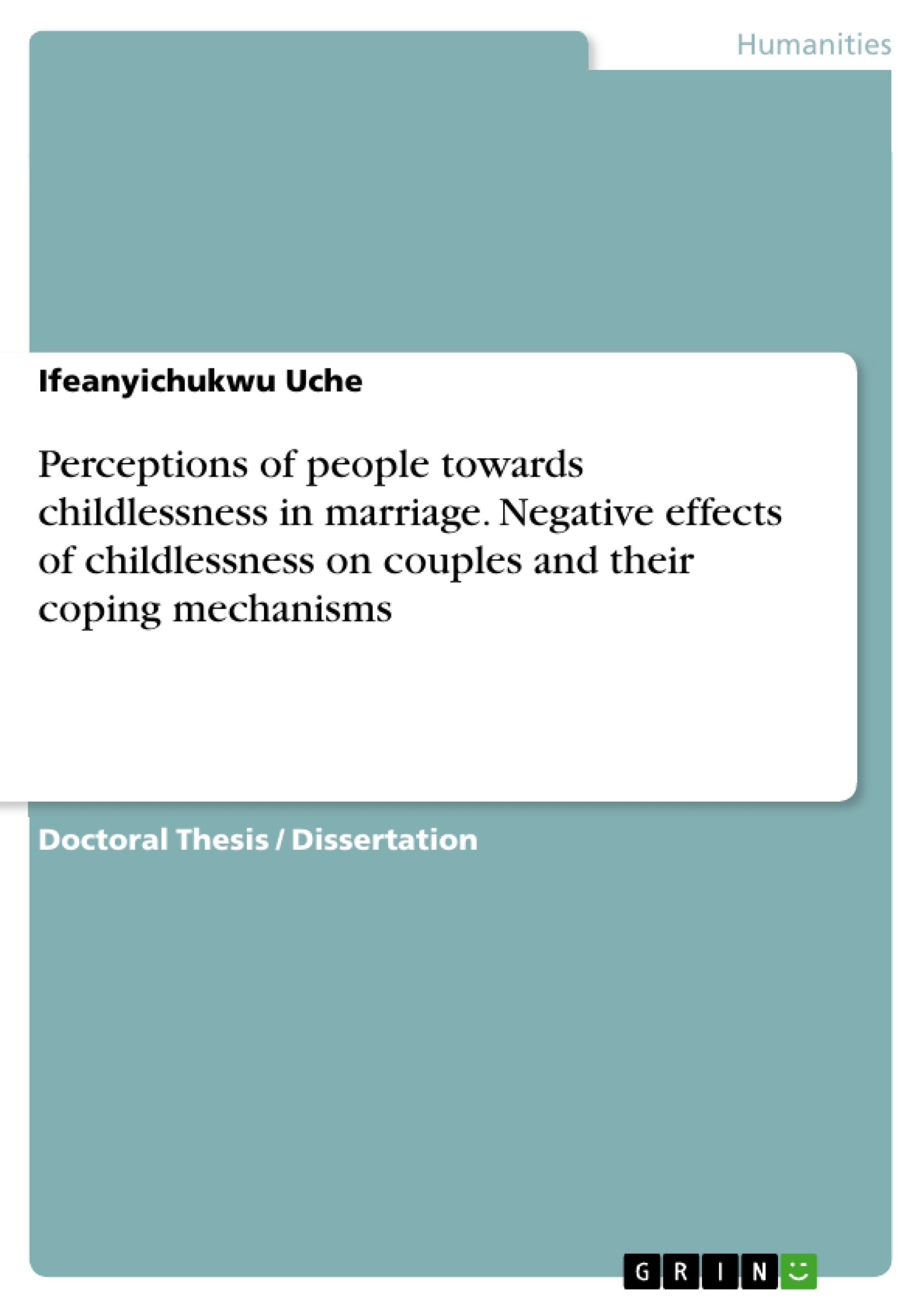Infertility is one public health issue with major social and psychological implications. It is well acknowledged that infertility in married couples represents a serious life crisis that jeopardizes the stability of individuals and relationships. Apart from the magnitude of the problem, women have received the majority of the attention when it comes to infertility care, with men receiving less attention. Nonetheless, this study evaluates the perceptions of people towards childlessness in marriages.
However, data collection was accomplished through the use of a questionnaire. A simple random sampling technique was used for the study. The study has a sample size of 347. SPSS software was used to analyze the gathered data. The study's conclusions highlighted a number of negative effects of childlessness, including as labelling, abuse, depression, anxiety, and stigmatization. Other effects included labelling, denial of cultural rights, disrespect from a spouse, and polygamy. Furthermore, 57.0% of the respondents agreed that there was a link between spirituality and not having children, while 34.5% disagreed and 8.5% was unsure.
The study also discovered that childless couples used self-control, positive self-talk, escape/avoidance, and social support as coping strategies. In the end, infertility is a medical condition requiring appropriate treatment. Therefore, this study recommends that the government give top priority to the creation of short-term plans and programmes that aim to set up easily accessible, reasonably priced medical facilities and infertility counselling centres.
Inhaltsverzeichnis (Table of Contents)
- Chapter One: Introduction
- 1.1 Background to the Study
- 1.2 Statement of the Problem
- 1.3 Aim and Objectives
- 1.4 Research Questions
Zielsetzung und Themenschwerpunkte (Objectives and Key Themes)
The primary objective of this study is to evaluate societal perceptions of childlessness within marriages, exploring its negative effects and the coping mechanisms employed by affected couples. The study aims to understand the multifaceted impact of infertility on individuals and relationships.
- Societal perceptions of childlessness in marriage
- Negative consequences of childlessness on couples
- Coping strategies used by childless couples
- The role of spirituality and cultural beliefs in perceptions of infertility
- The gendered experience of infertility
Zusammenfassung der Kapitel (Chapter Summaries)
Chapter One: Introduction: This chapter sets the stage for the dissertation by highlighting the global prevalence of infertility, particularly its significance within African cultures. It emphasizes the profound impact of infertility on marital stability and relationships, noting the disproportionate psychological burden on women. The chapter also discusses prevalent misconceptions surrounding infertility causes and treatments, including the common reliance on traditional and religious methods in some communities. The chapter concludes by stating the problem, its aim and objectives, and research questions.
Schlüsselwörter (Keywords)
Coping mechanisms, perception, childlessness, infertility, societal impact, cultural beliefs, marital relationships, psychological distress, gendered experiences, traditional treatments.
Frequently Asked Questions: Comprehensive Language Preview
What is the purpose of this study?
The primary objective is to evaluate societal perceptions of childlessness within marriages, exploring its negative effects and the coping mechanisms used by affected couples. The study aims to understand the multifaceted impact of infertility on individuals and relationships.
What are the key themes explored in this study?
Key themes include societal perceptions of childlessness in marriage; negative consequences of childlessness on couples; coping strategies used by childless couples; the role of spirituality and cultural beliefs in perceptions of infertility; and the gendered experience of infertility.
What topics are covered in Chapter One?
Chapter One provides an introduction, outlining the global prevalence of infertility, its significance in African cultures, and its impact on marital stability and relationships. It discusses misconceptions surrounding infertility causes and treatments, the disproportionate psychological burden on women, and the reliance on traditional and religious methods in some communities. Finally, it states the problem, aims, objectives, and research questions.
What are the key words associated with this study?
Key words include coping mechanisms, perception, childlessness, infertility, societal impact, cultural beliefs, marital relationships, psychological distress, gendered experiences, and traditional treatments.
What is included in the Table of Contents?
The table of contents includes an introduction (with sections on background, statement of the problem, aim and objectives, and research questions).
What is the overall scope of this language preview?
This preview offers a comprehensive overview, including the title, table of contents, objectives and key themes, chapter summaries, and keywords.
- Citar trabajo
- Ifeanyichukwu Uche (Autor), 2022, Perceptions of people towards childlessness in marriage. Negative effects of childlessness on couples and their coping mechanisms, Múnich, GRIN Verlag, https://www.grin.com/document/1437722




